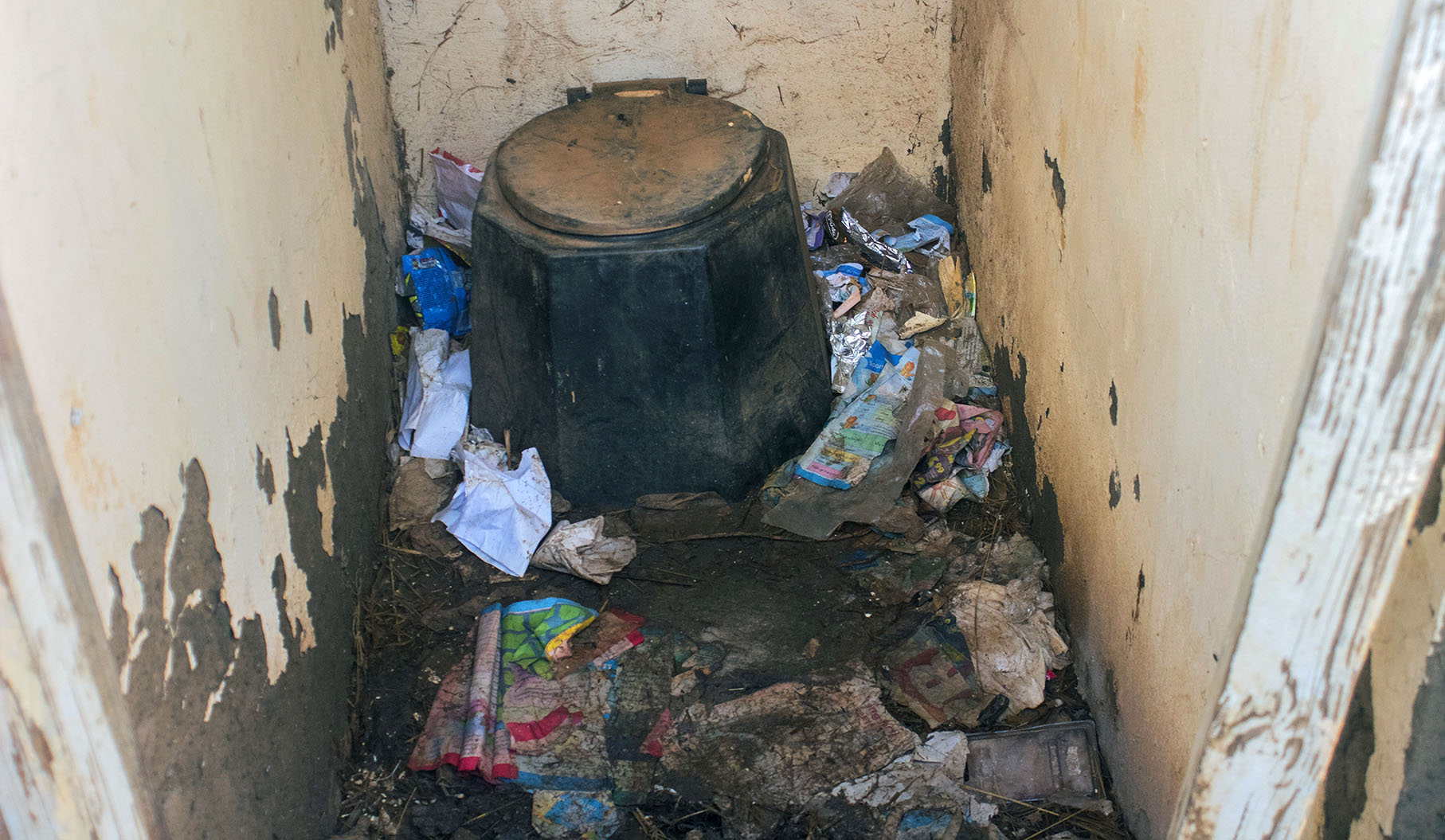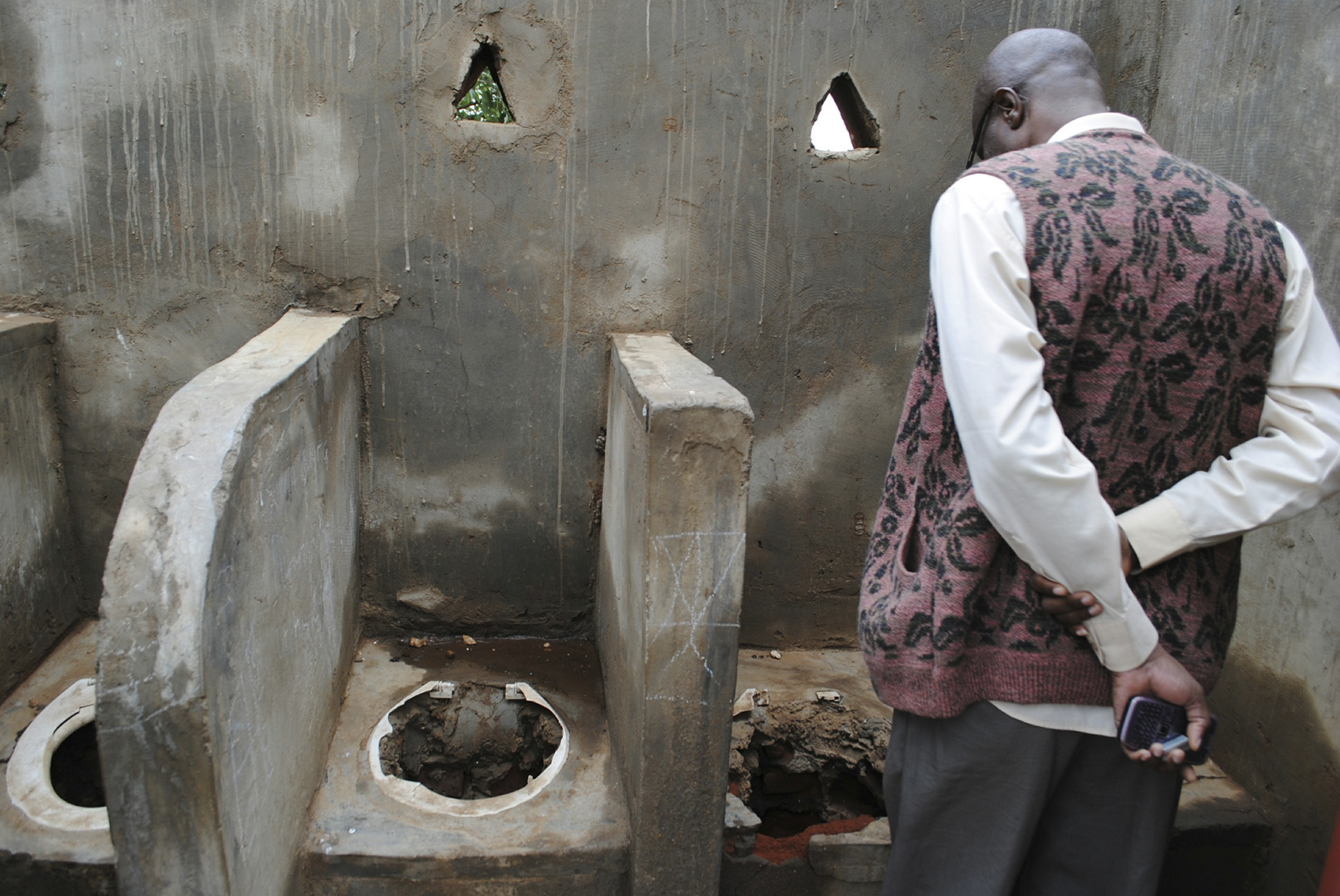In January 2014, six-year-old Michael Komape lost his life at Mahlodumela Primary School in Limpopo. In the Eastern Cape in 2018, five-year-old Viwe Jali died at Luna Primary School in Bizana. In the same year and at the same school, Lumka Mkhethwa, a five-year-old Grade R pupil, was sent outside to wipe her nose and was later found drowned in a pit latrine. In 2023, the body of four-year-old Langalam Viki was found behind a pit toilet at Mcwangele Junior Secondary School.
Public outrage at the conditions which gave rise to these tragedies – and to the daily humiliation of so many children – demands that we honour these lives through our action. Human rights advocacy groups such as Section27, Equal Education and the Equal Education Law Centre have played a critical role in demanding justice for families, in taking legal steps to advocate for systemic solutions, and have kept the issue alive in the public conscience.
The South African Human Rights Commission played a valuable role in its investigation published in February 2025, which documents the life-threatening dangers of unsafe and inappropriate sanitation facilities.
Broader issues
However, a singular focus on pit latrines as the solution to school sanitation challenges may mean that we are not examining broader issues related to school toilets. These include the centrality of sanitation in a school environment that is conducive to learning and maximises school attendance; and the urgency of identifying, monitoring and responding to pervasive systemic weaknesses in the maintenance and management necessary to ensure safe, dignified toilets that are not health hazards.
The DBE has since at least 2018 set targets for the “eradication” of pit latrines. In February 2025, given her public commitment to eradicate all pit toilets in public schools by April 2025, the Minister of Basic Education was asked to provide Parliament with information about the number of schools where pit latrines need to be eradicated.
Her response indicated that in 2006, the DBE’s School Register of Needs recorded 9,600 schools reliant on basic pit toilets. Fourteen years later, in 2018, 3,372 schools were identified for action under the Sanitation Appropriate For Education (Safe) initiative.
 A pit toilet at Enduku Junior Secondary School in Ngcobo, Eastern Cape. (Photo: Hoseya Jubase)
A pit toilet at Enduku Junior Secondary School in Ngcobo, Eastern Cape. (Photo: Hoseya Jubase)
A 2023 DBE report on Education Facility Management System indicated that there were 3,932 schools nationally with pit latrines – 73% in the Eastern Cape, KwaZulu-Natal, Limpopo and the North West. Of these, 728 had only pit latrines on site. In 2024, the DBE reported that the 3,932 had been reduced to 1,770 – a 45% decrease in one year. The number of school sites using only pit latrines was reduced from 728 to only 441. The minister was able to report in February 2025 that of the 3,372 Safe projects identified in 2018, 3,200 had been completed, with only 172 identified projects still outstanding as of 17 February 2025.
This has been achieved through determination and hard work, and by using alternative sanitation in contexts where water-borne sanitation is not available. This has also been possible because of the improvement in domestic sanitation across the country.
StatsSA has reported that since 2002, there has been significant progress in sanitation access in South Africa. The percentage of households with upgraded sanitation facilities, including flush toilets and pit toilets with ventilation pipes, rose from 62% to 83% by 2023. The percentage of households dependent on pit latrines without ventilation pipes was 23% in 2001 and was reduced to 10% in 2023.
While 17% of schools were still dependent on pit latrines without ventilation pipes in 2023, in one year this was reduced to 8%. This is closer to the household figure of 10% in 2023 and illustrates how progress in school infrastructure is integrally connected with infrastructural improvements in the community.
Between 2023 and 2024, there was a reduction of 2,162 in schools dependent on pit latrines without ventilation pipes with a concomitant increase of 1,192 schools using ventilated improved pit (VIP) latrines, and Enviro Loo (composting toilets), flush toilets with septic tanks, and alternate sanitation.
Why is this important?
First, because many children live in water-constrained contexts where there is no water-borne sanitation at home and in school. This challenge is not going to be resolved in the short term. Second, because schools that are dependent on pit latrines without ventilation pipes, VIP, composting toilets, and flush toilets using septic tanks will all require capacity to sustain full functionality of these facilities.
When well maintained, these alternatives can be more hygienic and safe than poorly maintained flush toilets linked to municipal systems.
The systems, resources and procedures for operations and maintenance must now take centre stage, noting the concerns of the South African Human Rights Commission in a 2025 report that “while the Safe programme has replaced many traditional pit toilets, these replacements are frequently non-compliant with critical design and safety standards outlined in Water Research Commission guidelines. Smaller pedestals, protective handles, offset pits, and reinforced structures, specifically recommended to ensure the safety of young children, are glaringly absent in many VIP installations.
“This oversight has resulted in VIPs posing risks similar to the facilities they were meant to replace, eroding public trust in the state’s commitment to eradicating unsafe sanitation.”
The report identifies systemic issues that exacerbate these failures, including budgetary constraints, poor oversight and a focus on infrastructure quantity over quality.
Maintenance and operations
The investment made in reducing pit latrines without ventilation and the progress made towards eradicating these should be acknowledged. But the focus must now shift to maintenance and operations.
A Unilever-funded study published by The Economist in 2023, Tackling Toilet Loss: The hidden economic and societal cost of neglecting school toilets, found that across four countries studied (Ecuador, India, Philippines and Nigeria), 1.2 million school toilets constructed since 2015 have been “lost” through lack of maintenance, and an estimated loss of$1.9-billion.
It also found that if toilet construction had been supported by operation and maintenance (O&M), the countries studied could be 10% closer to full coverage of basic toilets across schools. Prioritising O&M is critical to preventing “toilet loss”, and South Africa must recognise that increasing access to basic sanitation services in schools means investing not only in constructing toilets, but also in maintaining those toilets over their lifetime.
The Unilever study is evidence that a toilet built without a plan for O&M leads to toilet loss. Operational costs include: day-to-day costs incurred in ensuring that toilets have the resources required for use (toilet paper, handwashing soap, water supply) and operations (cleaning tools and resources, personnel for regular cleaning and minor repairs).
Maintenance costs for the upkeep of toilets over time (for example, pit-emptying and tools and capacity for minor infrastructure repair). The study argues that toilets become unusable through neglect from: lack of investment in operations and maintenance; lack of appropriate school-level management policies, or implementation capacity to enable toilet use (safety policies, school policies on routine operations and maintenance and a lack of provision of essential resources such as water and sanitary products).
Best practice
The DBE is working closely with local and international partners to learn from best practice and to apply this learning in guidelines for improving sanitation in schools.
It is leading the development of strategies to ensure that all schools follow guidelines and procedures to ensure a safe and sanitary environment and to institutionalise practices within schools that maximise hygiene. This includes the development of a set of guidelines and tools that will capacitate school leaders to consistently and rigorously manage and monitor sanitation in schools.
Pilot projects have shown the power of school communities – including school managers, workers, learners, and the community – to improve school sanitation by instituting rigorous and consistent daily routines and by providing essential resources.
Pilot schools have used self-assessment tools to ensure routine cleaning and maintenance and detection of problems to be acted upon. These tools have the potential to be a holistic evaluation system at national, provincial, district and school levels.
More needs to be done systemically to provide support to schools. Infrastructural maintenance challenges that are beyond the technical capacity of schools must be responded to with urgency. Schools must have the necessary funds to procure the essential cleaning materials, bins, handwashing materials, sanitary bins and supplies for menstrual health, and toilet paper – or these must be provided. In particular Pit, VIP, composting latrines and septic tanks require specialised and regular maintenance capacity external to the school in order to be safe and hygienic.
The DBE has made progress, and we must thank those that have kept this issue in public focus. But it is not enough to build a toilet.
There must be credible plans with tools for systemic monitoring and reporting in each school and every district in order to support the operation and maintenance of every new and existing toilet. This must be a priority so that we meet our obligations to provide safe, healthy, and dignified sanitation facilities in all schools – and so that all learners and teachers can focus on learning and teaching. DM
Mary Metcalfe is Professor of Practice at the University of Johannesburg School of Public Management, Governance and Public Policy.




 A pit toilet at Enduku Junior Secondary School in Ngcobo, Eastern Cape. (Photo: Hoseya Jubase)
A pit toilet at Enduku Junior Secondary School in Ngcobo, Eastern Cape. (Photo: Hoseya Jubase) 